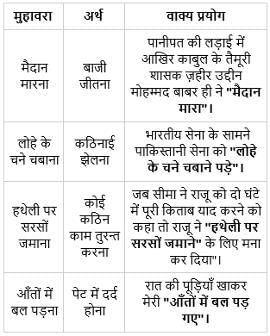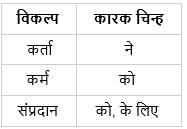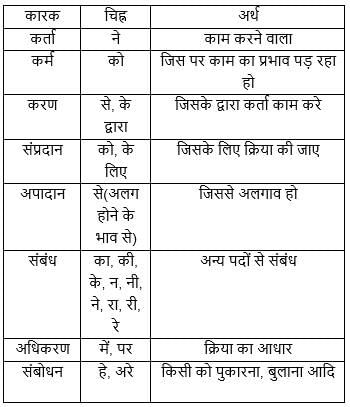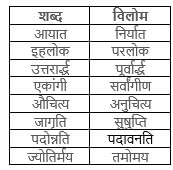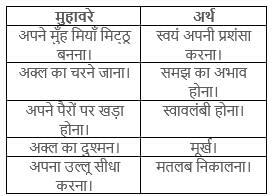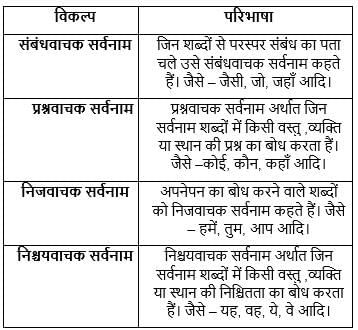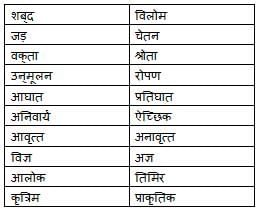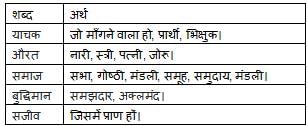SSC JHT Mock Test - 4 - SSC Junior Translator MCQ
30 Questions MCQ Test - SSC JHT Mock Test - 4
Choose the word that means the same as the given word.
Affection
Given below are four jumbled sentences. Select the option that gives their correct order.
A. The Monkey and the Crocodile became friends with each other.
B. The Monkey used to offer him sweet Jamun fruits from the tree.
C. There lived a Crocodile in a lake surrounded by green grasses, the sweetest Jamun trees, and beautiful mountains.
D. The Crocodile would visit the Monkey each day.
Given below are four sentences in jumbled order. Pick the option that gives their correct order.
A. It is celebrated on November 5th usually.
B. A man called Guy Fawkes tried to blow up the King with gunpowder over 400 years ago.
C. A couple of days after you arrive we'll have Bonfire Night.
D. It's only held in England as it marks a moment in our history.
Explain the meaning of the word ‘Polygamy’ as used in the passage.
Direction: Spot the erroneous parts, if any, in the following sentences:
(a) As the people were generally nice, / (b) he seldom or ever had/ (c) any trouble with them.. / (d) No error
Select the correct active form of the given sentence.
You are forbidden to press the button.
Direction: In this question, an idiom/phrase is given followed by four alternative meanings. Choose the most suitable meaning of the given idiom/phrase and mark it as your answer.
Direction: In the following question, a question is given in Direct speech. Out of the four alternatives, select the one which best expresses the sentence in Indirect speech.
The teacher said to the kid,” Well, what subject do you want to study”?
Direction: Fill in the blank with a suitable preposition in the given sentence:
Fools rush ______ where angels fear ______ tread.
Arrange the sentences in the correct sequence to form a coherent paragraph.
A. The complex had a huge tree growing right in the centre of the compound.
B. One day a builder decided to chop it off and build a swimming pool in its place.
C. The residents hung swings on it, fed the birds and squirrels that resided in it.
D. Several families lived in a posh residential complex.
Direction: Arrange the sentences A-D in the correct sequence to form a coherent paragraph. S1 and S6 are the first and last sentences.
S1: The Trojan War is one of the most famous wars in history.
A. What may not be familiar, however, is the story of how the war began.
B. All of the gods and goddesses had been invited to the wedding celebration in Troy except Eris, goddess of discord.
C. It is well known for the 10-year duration, for the heroism of a number of legendary characters, and for the Trojan horse.
D. According to Greek myth, the strife between the Trojans and the Greeks started at the wedding of Peleus and Thetis.
S6: To take revenge on those who had slighted her, Eris decided to cause a skirmish.
Select the correct meaning of the given idiom.
Wear someone out
Select the correct meaning of the given idiom.
with a fine tooth comb
Arrange the sentences in the correct sequence to form a coherent paragraph.
A. only 10% of global gold deposits contain sufficient gold to justify further development.
B. The likelihood of a discovery leading to a mine being developed is very low.
C. It requires significant time, financial resources and expertise in many disciplines.
D. Gold mine exploration is challenging and complex.
“कानों सुनी बात पर यकीन मत करो।' रेखांकित पद का कारक बताइए।
निम्नलिखित वाक्य-खण्डों के शुद्ध क्रम में व्यवस्थित विकल्प का चयन करें-
(क) विशिष्ट अभिव्यक्ति अलंकारों से
(ख) कविता की यह
(ग) झंकृतियों में नर्तन करती है
(घ) विभूषित होकर छंदों की
उद्यम से ही सफलता मिलती है।
उपरोक्त वाक्य में रेखांकित शब्द के विलोम शब्द का चयन विकल्पों में से कीजिए।
वाक्य को उसके सही क्रम में लगाये-
- देश में अनुशासन कि पुनः स्थापना हेतु
- का थोड़ा बहुत समावेश
- यह आवश्यक है कि हमारी शिक्षा व्यवस्था में
- अवश्य किया जाए
- नैतिक और चारित्रिक शिक्षा
- ताकि छात्रों को कर्तव्य - अकर्तव्य का ज्ञान हो सके।
निर्देश: निम्नलिखित वाक्यों में उनके प्रथम तथा अंतिम अंश जिन्हें मोटे अक्षरों में लिखा गया है वह A और F के अंतर्गत दिए गये हैं। बीच वाले चार अंश (B), (C), (D) तथा (E) बिना क्रम के हैं। चारों अंशों को पहले और आखिरी वाक्य के सहयोग से उचित क्रमानुसार व्यवस्थित कर उचित विकल्प चुनें।
A) प्रातः काल में शरीर को पूर्ण मानसिक
B) कुछ प्राणायामों के साथ अन्तर्ध्यान करवाना अपेक्षित होगा
C) जिससे स्वदुर्गुण यदि हैं तो उन्हें दूर करने के लिए
D) दृढ़संकल्प शक्ति तैयार की जा सकती है।
E) और शारीरिक रूप से स्वस्थ रखने के लिए
F) इसप्रकार जीवन स्वयमेव धार्मिक बन जायेगा I



